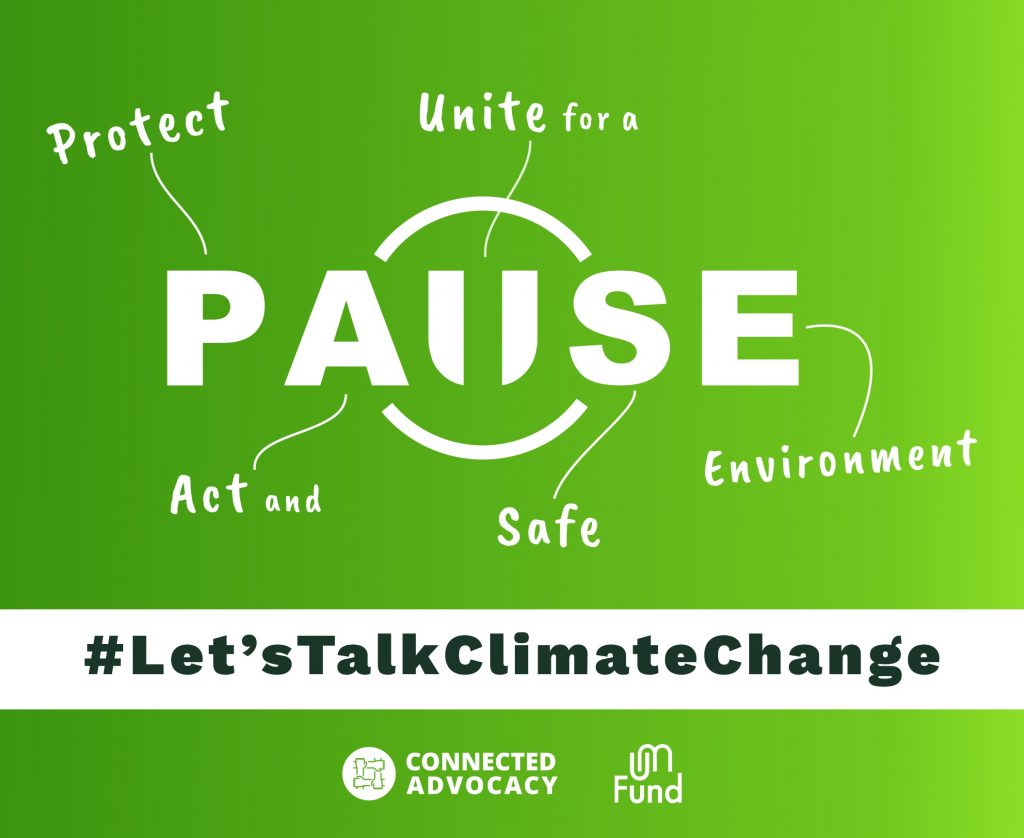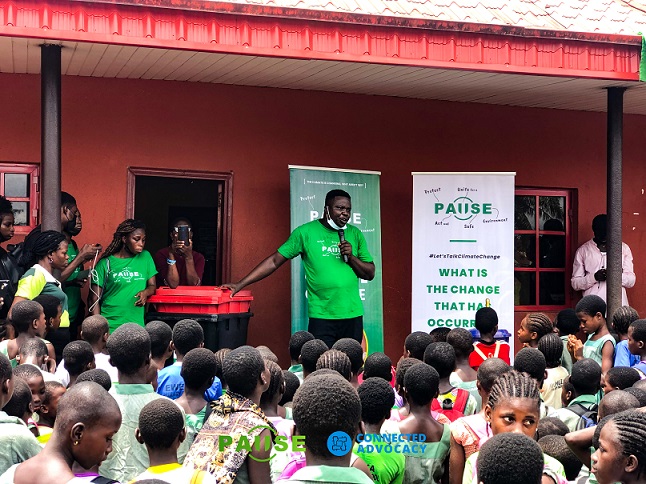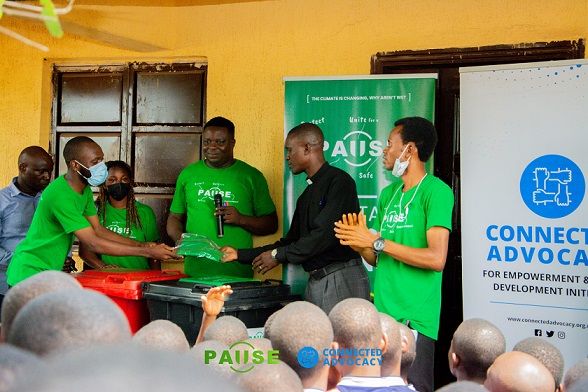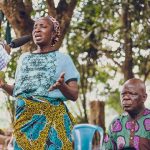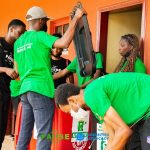“Little things matter” often we hear people say this and take these words with a pinch. But in all essence, little things do matter. It is our little efforts that accumulate into big efforts. It is these accumulated efforts that result in the effect or impact we experience in any/every sector of our lives today. This is largely the case for our environment.
The condition of our immediate environment is a reflection of how much attention we give to our environment. Whether we care for or neglect the environment can be determined by how well our drainages flow, or by the quality of the air we breathe. While many consider caring for the environment as the responsibility of government, that isn’t the case―remember, “little things matter”. An accumulation of our activities (good or bad) in our environment determines its condition.
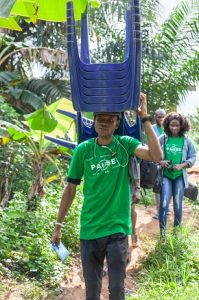
To identify how negligence to take care of the environment and how it has impacted our communities, on Saturday 17th September 2021, a group of young and passionate climate actors from Connected Advocacy visited Iwogban community. Iwogban is a semi-urban community in Ikpoba-Okha Local Government Area (LGA) that has suffered the adverse effect of climate change. Erosion and various human activities have led to a devastating loss in the community.
Two things drew our attention to this community on a previous visit: that the large gully which is almost 12 metres at its widest part was once a major road and that it has completely submerged houses. Speaking to some of the community members, they explained that this impact was majorly caused by incessant erosion which was not properly channelled―the waterway was blocked.
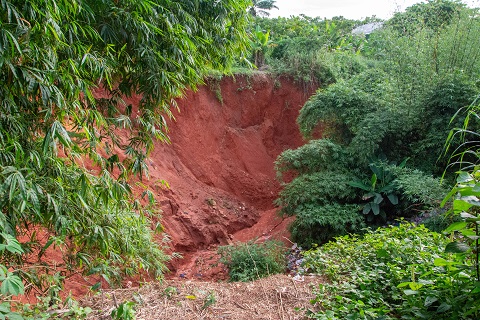
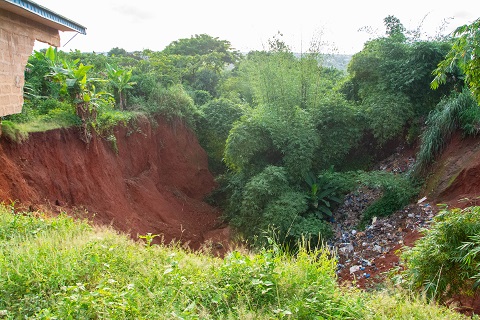
The road now turned gully used to serve as a linking road between Lucky Way Road and Tembuga Road, this served as a major diversion of traffic from the ever-busy Benin-Auchi Road. Because of the gully, access to the community is now a major challenge. Community members complained of the challenges of receiving visitors and bringing large items (like furniture) into their homes because they would have to walk for about 20 minutes through slopy bus paths before getting to their homes. This difficulty has also affected access to healthcare facilities especially in times of emergency as the community do not have any health facility.
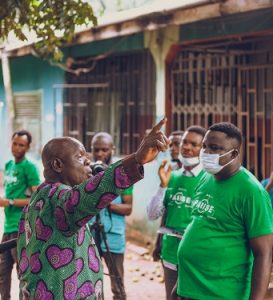
Speaking on how the gully has turned “landlords to tenants”, Pa John, an elder in the community who has lived there for over 40 years mentioned that the gully started as a little hole beside the tarred road about 20 years ago, a little hole that many ignored which later turned to a gully. Houses have now been submerged by the gully―he said 11 houses have completely been submerged leaving their owners stranded and turning them into tenants. On our visit, we were shown 3 houses that has been partially submerged and told stories of how parts of the buildings keep falling in bits after every rainfall―this has made the residents pack out several months ago.
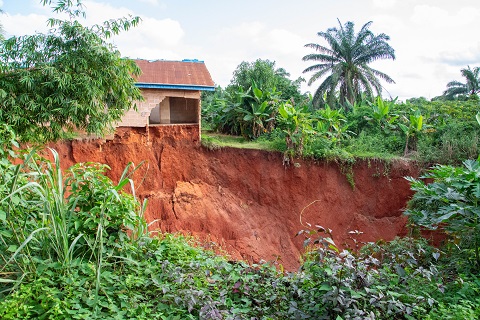
David, a 13-year-old secondary school student who resides and had lived in the community since birth recalled scenes of how his elder brother used to sweep the compound of their home that once enjoyed the view of vehicles passing by the road; views that have since been replaced by the gully. He also spoke about how the state of the community has affected the population of their school; parents have taken their children outside the community to somewhere safer especially during the rainy seasons.
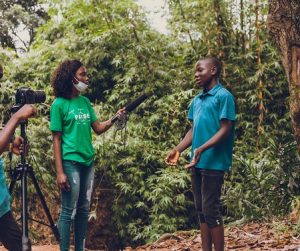
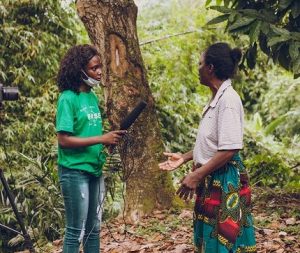
David and his mother speaking with the PAUSE team.
David’s mother spoke about how the environmental condition had affected business especially that of small retailers who now have difficulties in getting supplies and could no longer benefit from the patronage of commuters passing through. She also spoke about efforts that had been made by members of the community to fix the gully when it was still in the form of a ditch and manageable. They had contributed money to fix it but nothing was done despite their contributions and now the situation is out of their control.
The community had also made several attempts to communicate with relevant government offices to come to their aid but nothing has come off it; they keep getting promises from politicians especially during election periods, yet nothing has been done. Mr Odion, a retired army officer whose house is about 7 feet away from the gully had worked with other community members to plant bamboos trees in and around the gully to solidify the sand as a temporal measure to slow down the rate at which sand washes away.
Sadly, some of the community members dump refuses in the gully especially plastic waste which gets washed into the Ikpoba River nearby causing more environmental damage. The impact of climate change is here and the earlier it is tackled, the better it will be especially for occupants of Iwogban community. It is essential that we all PAUSE – Protect, Act, and Unite for a Safer Environment.
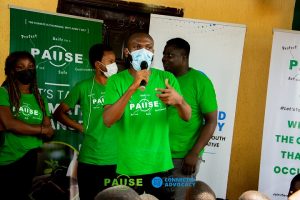
Like Iwogban community, there are several communities in Edo State where residents commit environmental crimes like forcefully diverting waterways, dumping refuse in them, cutting down trees and engaging in other activities that endanger the environment. To ensure that the coming generation does not sustain this negative attitude towards the environment, the Connected Advocacy PAUSE team paid visits to two schools to engage students and teachers on the need for caring for our environment as the solution to combating climate change.
Our first stop was at Eweka Primary School, Useh in Egor LGA on the 23rd of September. A representative from the state Ministry of Environment and Sustainability, Mr Wilson was with the team. On Friday 24th September the team visited Eghosa Anglican Grammar School in Oredo LGA. On both visits, Shofu Ajayi led other volunteers to teach the students about climate change, why they should be concerned about climate change and their environment and things they can do to take care of their environments. At the end of the visits, the Executive Director of Connected Advocacy, Prince Israel Orekha presented four 240 litres outdoor waste bins to the principals for the school’s use on behalf of the team.
Prince Israel Orekha presenting waste bins.
More photos
